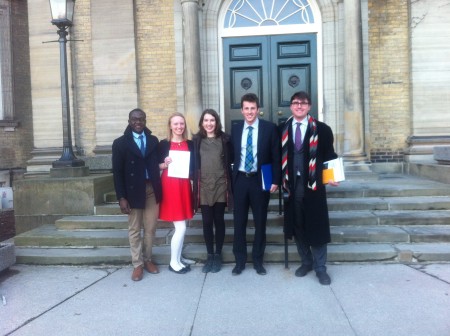In addition to the standard advice about reducing the amount of environmental harm you’re imposing on others (limit driving, avoid flying, avoid meat, etc), a recent Grist article suggests that you “use everything you own for so long that it turns into dust”.
As a general philosophy, I am trying out the following:
- Avoid acquiring entirely new types of things, especially those that require a lot of resource use to support.
- Where possible, repair gear that has become damaged.
- When necessary, replace gear. If it’s gear in frequent use, replace it with something tougher
Recently, I sent my 10+ year old hiking boots off to be re-soled. I have decided to keep using my five year old iPhone 4 until it suffers a critical failure. Today, I was able to replace the battery (which had only been good for 30 minutes of talk time and prone to fail instantly in the cold) at the Apple Store for $111.87. Strangely, Apple will not replace the battery in a 160 GB iPod Classic. Instead, they will replace the whole device for the cost of the battery, something I also did today for $84.75. The charging cables for both my iPod and iPhone have nearly completely fallen apart, but I will keep using them until the last one fails. I need to replace my iPhone case, since it is falling apart. No physical stores sell such old cases, so I will need to find one online.
My collection of inexpensive watches is down to a single usable item. The Eddie Bauer watch my grandparents gave me in high school won’t run even with a brand new battery. The Mondaine watch I bought at the MoMA now loses about eight minutes per hour, making it useless. The Marathon watch with tritium tubes, which they have already repaired once, has a loose tube (full of radioactive gas) shaking around in the case and needs to go back again. My Timex Expedition‘s plastic face is all scratched up (like the Marathon watch) but it still functions perfectly.
Yesterday, I replaced one of my FEIT Electric 1600 lumen (100 watt equivalent) LED bulbs with a new one that doesn’t buzz all the time. My Barbour Beaufort jacket has growing holes in the waxed cotton along the bottom of the sleeves, as well as lots of damage along the back where I often sit on it (despite several prior repairs). My MEC merino wool long johns have big holes in the bottoms, and both of my pairs of MEC cargo pants have at least one failed zipper. I already replaced my Hedgren laptop bag with a Briggs & Riley verb bag because replacing all the failed zippers would have been costly and impractical.
There are a lot of other bits of gear with issues. The headphone out port on my nine year old iMac is dodgy, but the computer as a whole has worked remarkably well. The iPad Mini on extended loan from my brother Sasha has a cracked screen, but it doesn’t cause any problems. My Canon 5D Mk II still suffers from the consequences of its tragic injury. In particular, the shutter release on the battery grip doesn’t work. My used 5D Mk III has stranger problems. Sometimes it refuses to release the shutter, apparently because it doesn’t realize that autofocus has already happened. Sometimes, focusing on something closer and then switching back fixes the problem. Sometimes it requires a power cycle. Oddest of all, it sometimes produces corrupted RAW files, something I have never experienced with any other digital camera.
All my lenses are in good working order, as are my flashes and the radio triggers for them. My MacBook Pro and Fuji X100s are similarly at full capacity. My Sennheiser HD595 headphones are working, along with my Pro-Ject headphone amp and my Shure SE-215 earbuds (having already replaced the cable once).
One new thing I definitely need is the largest possible bookshelf for my new room. Until I can find something that I will be able to get up the three flights of stairs, my books are sitting in a stack of 15 banker’s boxes. I also want to fix the hinge on my wardrobe. In the longer term, I am thinking ahead to the research trip for my PhD. Whether I end up subletting my room for those weeks/months or not, I will want somewhere secure to store photo and computer gear, as well as backups, when I am away. Maybe I can modify the wardrobe to lock, or add a locking compartment.
I will also eventually need to replace the creaking complaining futon which I bought from the previous inhabitant of this room – ideally, with a bed which includes built-in storage underneath.
(Note: There is an extensive earlier discussion about abstinence from harmful activities and resistance against the societal structures that permit them as alternative approaches to mitigating environmental problems.)

